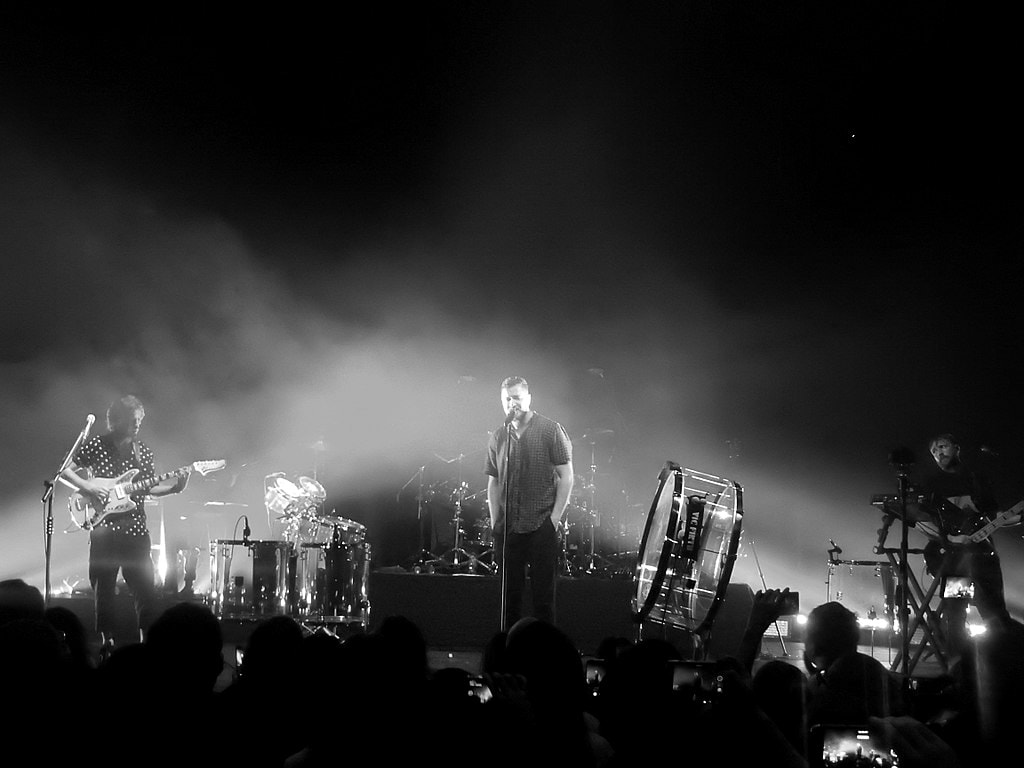|
The Breadcrumbs widget will appear here on the published site.
Rock Is DeadFor the past few years, I’ve heard a daily barrage of cheerful news about the United States economy. Unemployment down to historic lows! Inflation rates stable! Stock market soaring! I read these optimistic articles cuddled up in bed, the warmest place in a house I share with seven people, and wonder exactly what goddamn alternate reality they were living in to take these disparate numbers and rosily conclude that the economy had “recovered” from the disastrous 2008 crash. I’m sure stock buybacks boosted market gains after the Trump tax cut, and it’s true that no one can afford to have less than one full-time job these days. But 57% of Americans cannot afford a surprise $500 expense, which is the type of statistic that should truly scare the bejesus out of you. Also Imagine Dragons is hugely popular. That should scare you too. As of January 30, 2019, Imagine Dragons hold three of the top 21 spots on the Billboard Top Rock Songs chart. They seem like a standup group of guys- four generally unobjectionable Mormons who write catchy hooks and booming choruses. The problem is that they’re not really rock, in the sense of the genre. Rock has historically built itself on the foundation of the blues; pushed boundaries; entertained. Imagine Dragons does absolutely none of these things. Their mediocre pop-rock is tame and bland enough for the whole family, overprotective suburban moms included. The kindest thing I can say about their music is that I’d enjoy them at a state fair but probably wouldn’t buy any merch. And every time they come on the radio I think: if Wall Street hadn’t irretrievably stuck its head up its own ass ten years ago, rock music might still be alive today.
Music is inherently a reflection of cultural psychology. During prosperous times, listeners seek thrills to distract them from an otherwise mundane existence. During harder, grimmer times, like the one we face today, listeners gravitate more towards the comforting and familiar. For American rock fans, that “familiar” is a folksy four-chord ditty clocking in at roughly under four minutes, made popular by the likes of the Lumineers and Mumford & Sons. It makes sense once you think about it. If you’ve just worked a 12-hour shift on your feet at some dead-end retail job for $8.95/hr and you’re driving home in your rattling ’02 Corolla, you don’t want an epic six-minute ballad on the excesses of L.A.’s strippers-and-coke scene. Folk and indie have consistently dominated the modern rock charts since 2008, and that’s no accident. If you don’t like hearing the banjo on rock radio, thank Lehman Brothers. This is their doing. Economic stagnation has another, even more sinister effect on music. It creates a sort of creativity bottleneck. With less money available, grants shrink and funding for the arts disappears. Children are less likely to learn instruments in schools. That guy from high school who could shred like no one’s business and dreamed of starting a band? He’s working back to back shifts as a pizza delivery driver just to make rent. Fewer people have money to go out and see live acts, which drastically cuts down the number of musicians who can make a decent living playing music, and then all of a sudden you have a substantially smaller pool of talent aired on modern rock radio. To prove that the American rock music psyche has shrunken inward like a badly ingrown toenail, I present to you a comparison of today’s top bands with those from the 1990s. A generally sunny and optimistic decade of progress, rock radio listeners sought technical bombast (Guns’n’Roses, Metallica), thrill (Nine Inch Nails, Marilyn Manson), and new genres (grunge, rap-rock, and ska got significant airtime during this era). Sure, Mumford & Sons, with their scrubby little beards and banjos and bare feet, can sell out stadiums today, but back in 1993 they would have been blown offstage by a monster Motley Crue guitar solo. Today’s biggest rock acts? Pop-rockers Foster the People, Walk the Moon, and. . . Imagine Dragons, who held four of last year’s Top 10 hits. As I’m writing this, I can hear the soft snores of my boyfriend sleeping next to me. We both have great jobs: he works at a data center, I work for a government contractor. But we had unexpected medical expenses this year and I’m worried about how we’re going to pay those. As I’m fretting about mortgages and bills at 3 a.m., I crave easy listening; something reassuringly heartfelt, woeful perhaps, a four-chord composition sung in a minor tune. As Imagine Dragons sing, “I’m going back to my roots.” And maybe, just maybe, that’s not the greatest indicator of an economic recovery.
0 Comments
CommentsYour comment will be posted after it is approved.
Leave a Reply. |
AuthorWrite something about yourself. No need to be fancy, just an overview. Archives
July 2024
Categories
All
|



 RSS Feed
RSS Feed






